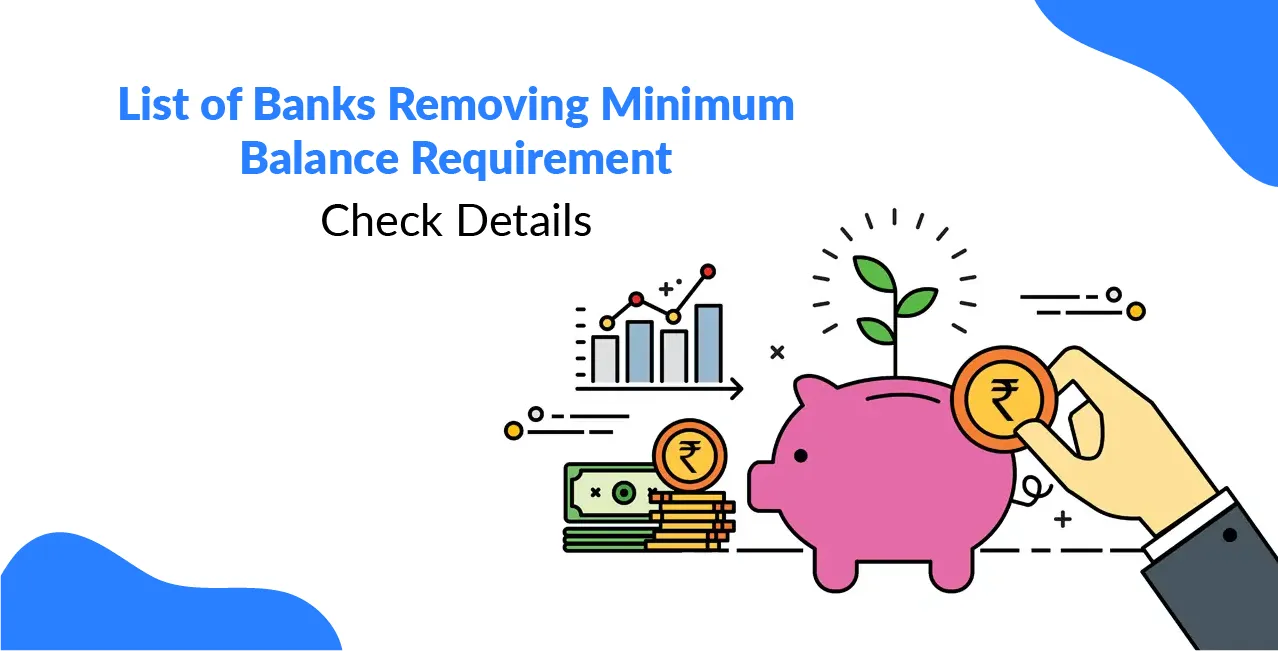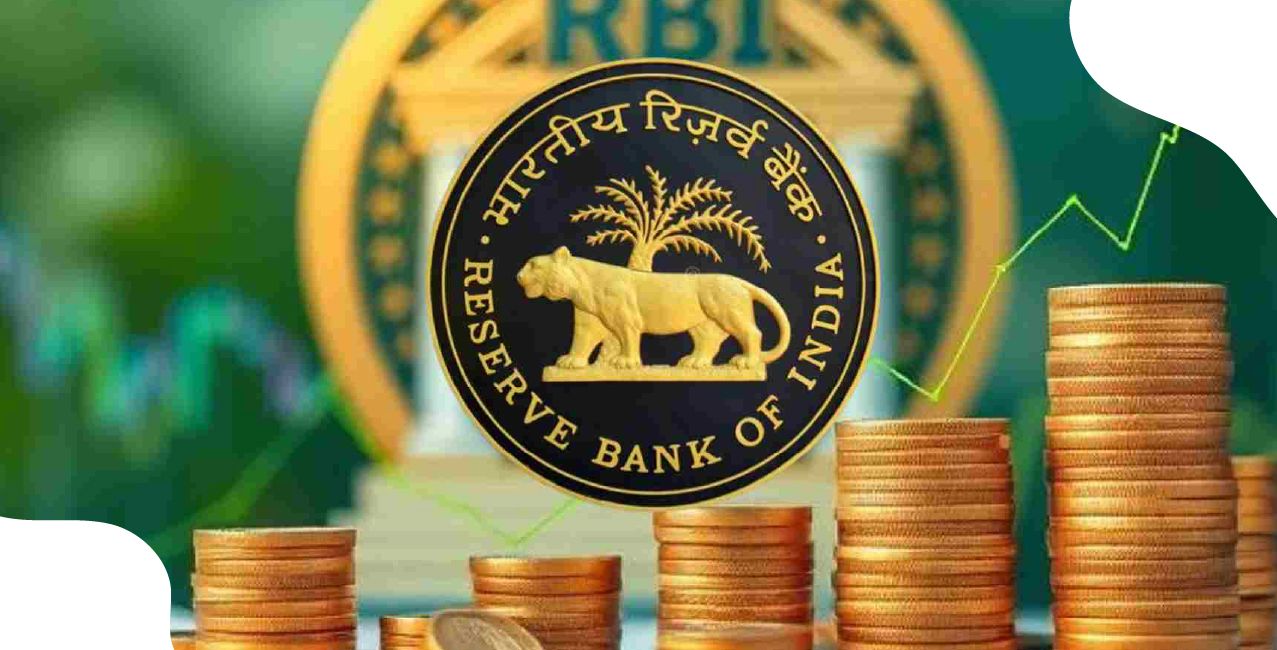List of Banks Removing Minimum Balance Requirement: Check Details

Check Your Loan Eligibility Now
By continuing, you agree to LoansJagat's Credit Report Terms of Use, Terms and Conditions, Privacy Policy, and authorize contact via Call, SMS, Email, or WhatsApp
Public Sector Banks Rethink Zero-Balance Accounts Amid Digital Push
Is a truly free savings account possible? Until not long ago, even basic banking wasn’t entirely cost-free.
Public sector banks often penalised customers for not maintaining a minimum balance. But that’s changing. A major policy shift is underway, driven by the push for digital inclusion and greater financial access.
Public Sector Banks Start Waiving Minimum Balance Charges
A steady decline in low-cost deposits and an evolving digital banking ecosystem have led several public sector banks (PSBs) to change direction.
Since June 2025, five major PSBs, including Canara Bank, Bank of Baroda, Indian Bank, Punjab National Bank, and Bank of India, have officially removed penalties for non-maintenance of Average Monthly Balance (AMB) in savings accounts.
Read More – HDFC Zero Balance Account
The shift picked up speed after the Ministry of Finance reviewed deposit patterns in public sector banks. Lenders were urged to boost financial inclusion and make basic banking easier.
According to the Reserve Bank of India’s Financial Stability Report released on June 30, 2025, more banks are now leaning on higher-cost term deposits, as CASA (Current Account and Savings Account) deposits see a decline. In light of this, banks have now shifted their focus toward offering zero-balance accounts as a step to retain customers and increase digital engagement.
Dates and Scope of Balance Waivers Announced
The move towards zero-balance accounts is no longer limited to Jan Dhan Yojana beneficiaries. Full-service savings account holders at these banks will also benefit now. Here's a quick overview of recent announcements:
Public Sector Banks Dropping AMB Penalties
Earlier, the State Bank of India (SBI) was the first to eliminate such penalties back in 2020. Now, with most other PSBs following, savings accounts are becoming more inclusive and penalty-free.
RBI Report Pushes Banks to Reconsider Penalty Structures
The RBI’s Financial Stability Report (June 2025) provided the key data that pushed this change. It highlighted that public sector banks witnessed a visible decline in CASA share and increased reliance on time deposits to meet credit demand.
At the same time, digital transactions continued to rise, further reducing the need for physical banking or premium account features.
This shift has made penalty structures on savings accounts less justifiable. Moreover, high non-maintenance penalties often affected low-income customers the most.
The finance ministry’s recommendations called for a review of these policies to ensure parity and ease of banking access.
To understand how banks have reacted to this policy shift, here’s a broader look at their actions.
Reasons Behind the Policy Change
Several banks had already been offering special zero-balance accounts under the Pradhan Mantri Jan Dhan Yojana (PMJDY). But now, regular customers are also seeing a similar benefit, without needing to apply for a special scheme.
Still Not Universal Across all Account Types
Despite the recent progress, these changes apply only to standard savings accounts. Relationship-based or premium accounts with additional features may still carry minimum balance conditions. Customers are advised to check with their bank for the specific terms related to their account type.
Also Read - SBI Zero Balance Account
Also, private sector banks have not yet followed suit in a major way. For now, the wave of AMB penalty waivers is concentrated among public sector players.
What Customers Should Still Check
Digital Push and Customer Retention Strategy
Banks are increasingly relying on digital channels to engage with customers, and the removal of minimum balance rules fits neatly into this strategy. By eliminating penalties, public sector banks aim to reduce account dormancy and encourage more frequent digital transactions.
This move also helps retain existing customers who might otherwise shift to private banks or fintech platforms offering zero-balance features.
As mobile banking grows and cash usage declines, offering frictionless savings accounts becomes a competitive necessity.
The shift also reflects a broader effort by banks to simplify services and rebuild trust with account holders, especially in semi-urban and rural regions.
Conclusion
With five PSBs having dropped minimum balance penalties, and others expected to follow, a wider shift is underway in the Indian banking sector. More customers can now keep their savings accounts active without the worry of deductions for low balances.
The step also aligns with India’s ongoing push toward digital banking, simplified services, and wider financial access.
As financial inclusion deepens and competition increases, minimum balance requirements may soon become a thing of the past, not just for basic or government scheme accounts, but for all accounts.
Other News Pages | ||
73% ATMs Now Dispensing ₹100 & ₹200 Notes Before RBI Deadline | Supreme Court: Banks Cannot Revalue Gold After Loan Repayment | |
About the author

LoansJagat Team
Contributor‘Simplify Finance for Everyone.’ This is the common goal of our team, as we try to explain any topic with relatable examples. From personal to business finance, managing EMIs to becoming debt-free, we do extensive research on each and every parameter, so you don’t have to. Scroll up and have a look at what 15+ years of experience in the BFSI sector looks like.
Subscribe Now
Related Blog Post

Home Loan Interest Rates 2025 Deliver Major EMI Relief, Will Borrowers See More Gains In 2026?

Will the Indian Rupee Stabilise in 2026 After a Volatile 2025?

RBI Draft Rules Target Surprise Costs in Overseas Payments
Recent Blogs
All Topics
Contents
Quick Apply Loan
Consolidate your debts into one easy EMI.
Takes less than 2 minutes. No paperwork.
10 Lakhs+
Trusted Customers
2000 Cr+
Loans Disbursed
4.7/5
Google Reviews
20+
Banks & NBFCs Offers
Other services mentioned in this article





